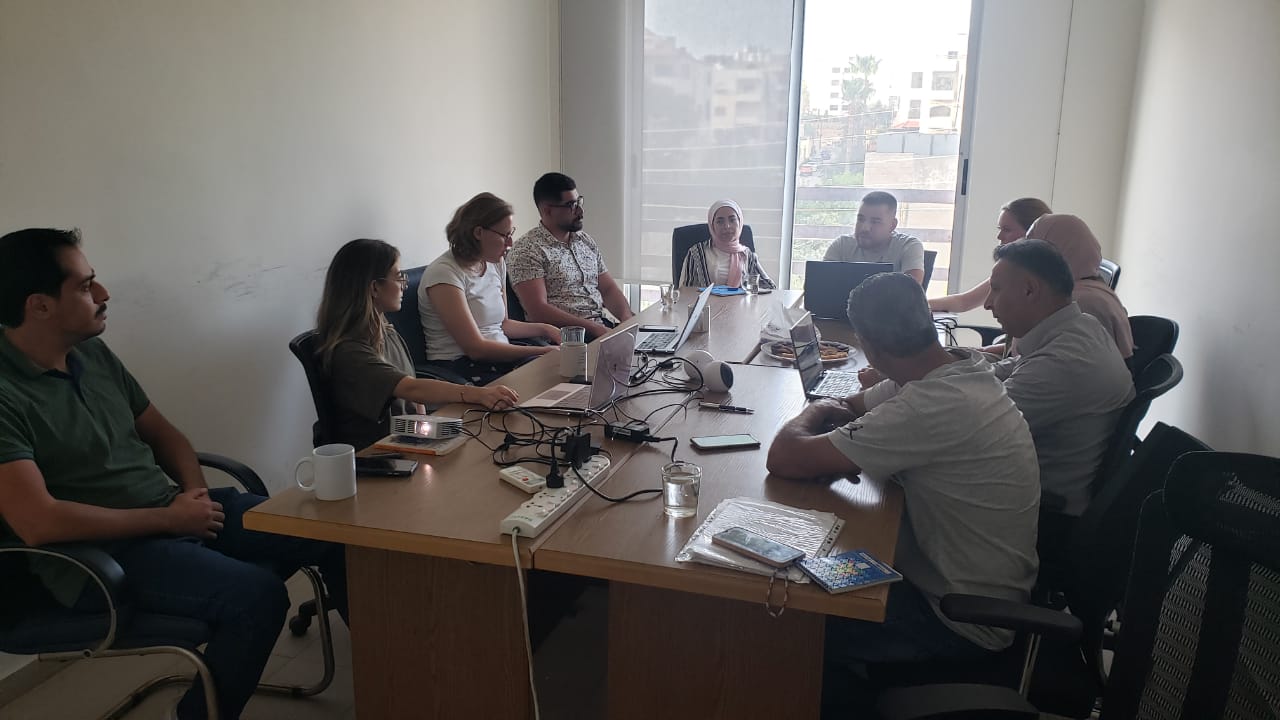In the beginning of August URI MENA hold a Cultural Cafe on the topic “intercultural communication”, facilitated by Anna-Maria, a German volunteer of Desert Bloom. We had over eight people joining us in the office in Amman and even more who participated online.
We started the cultural cafe talking about what culture means to us and how we can understand interculturality. We concluded that culture is not limited only to national or ethnic groups, but also exists within subcultural groups, religious communities, age groups, genders, and other social entities. It influences behavior, communication, thought patterns, and interactions of people in diverse ways around the world. Interculturality, we find in cultural overlap – the space when our own culture comes together with a foreign culture. This is also the space where intercultural communication is happening. Intercultural communication is the exchange of information, ideas, and expressions between individuals or groups from different cultural backgrounds. It is a symbolic, interpretive, contextual process, in which people from different cultures create shared meanings.
When different cultures meet, the encounter can cause many conflicts. Intercultural communication also presents some challenges. Especially when it comes to language, cultural affiliation, and cultural differentiation. Specific challenges of intercultural communication can occur because of different understandings or perceptions of nonverbal communication, directness & indirectness, perception of time, cultural norms, assumptions, and stereotypes.
The cafe concluded with strategies for successful intercultural communication: be open-minded, develop cultural intelligence, be patient and tolerant, listen actively and use universal themes.

